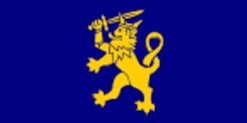This New England media round-up begins in the Hunter, where the Newcastle Herald has recently had a number of very interesting stories.
The Bahtabah Local Aboriginal Land Council has lodged a land claim for the entire water body of Lake Macquarie. Damon Cronshaw's story brings out some of the complexities involved.
I have been meaning to write something on native title complexities, but finding the time required to do proper research is a problem.
Michelle Harris reports on the farewell speech of Cessnock Labor MP Kerry Hickey. The story says in part:
Yesterday, he cited achievements including money for main street improvements, pushing for the initial planning of the Hunter Expressway and advocating for better roads in Cessnock.
He expressed his frustration at having ‘‘fought the local council for the past 10 years’’ over the lack of progress with Kurri Kurri’s troubled Hunter Economic Zone, which he said had been central to his efforts to diversify the Cessnock economy.
He said the recent decision to stop an electricity contract between the Kurri Kurri and Delta Electricity from being signed was ‘‘probably the most disastrous thing this government could do’’ for Cessnock.
He questioned the government’s attempts to privatise the power industry and the operation of Cessnock Jail.
‘‘I’ve probably been one of the most vocal members around the place and I’ve got to say that privatisation to me for the sake of privatisation is not beneficial for communities,’’ he said.
‘‘Why privatise a monopoly and give it to someone to screw over the community?’’
I think it fair to say that Mr Hickey is not happy!
This story followed an earlier one by Michelle Harris reporting on a rally by 200 Kurri Kurri smelter workers outside the Parliament House in Sydney, calling for the state government to approve the power contract between Delta Electricity and smelter owners Hydro.
Tensions between the union movement and the Labor Government have not been helped by the Government's decision to contract out the monitoring of coal dust. This was covered quite extensively on the ABC's 7.30 Report.
I actually saw this program. This one links in quite an important way to the New England history I am trying to write. The fight for better conditions in the mines including safety is one thread. The absence in Australia of the dreaded black lung disease is one outcome of that fight.
The continuing troubles inside Newcastle City Council received extensive coverage on the ABC's Stateline program. There have been tensions inside the council between mayor John Tate and other councillors and also, apparently, between the mayor and CEO Lindy Hyam who has now resigned.
I have to be careful in reporting here because I don't properly understand all the dynamics involved. The politics of Newcastle and the coal fields can be quite complicated. Clearly Mr Tate, who is to be an independent candidate at the NSW elections in March against Labor incumbent Jodi McKay, has his detractors as well as supporters.
Staying with Newcastle Council, Ben Smee reports:
Newcastle City Council may have to sell crumbling buildings to cope with a $114million backlog of infrastructure works needed to bring city assets up to scratch.
According to financial reports released last month, the council spent about $34million on infrastructure maintenance during 2009-10.
About $114million is needed to bring buildings, roads, drains and natural assets to a ‘‘satisfactory standard’’.
Newcastle Council is not alone in facing this type of problem. At the end of November, the Local Government and Shires Association reported:
The Local Government and Shires Associations' (LGSA) annual cost shifting survey has revealed that NSW councils continue to foot the bill for State Government responsibilities, with local communities ultimately paying the price.
The LGSA surveyed 77 councils to determine the burden of expenses and services shifted to councils from the State and Federal Government. The cost shifting bill amounted to $440 million for 2008/09, accounting for 5.74% of Local Government's total income before capital.
President of the Shires Association, Cr Bruce Miller, said that the true impact is clear when you consider the annual cost shifting amount of $440 million is over two-thirds of the annual infrastructure renewal shortfall of $600 million.
In the Hunter, there is added venom to this debate because of the issue of mining royalties.
On 2 December, in Demand for coal royalties to return, the Herald's Michelle Harris reports that the Hunter contributed $897 million, or 73 per cent, of the state total of $1.233 billion in royalties paid to the NSW government in 2008-09. If Gloucester’s $21million is counted, the region contributed 75 per cent of the coal tally.
Checking these numbers against the population of the Hunter statistical division, that's $1,771 per head for every man, woman and child in the Hunter. There is a strong local view that the Hunter has not received its fair share of this money, a view reflected in the comments on the story. Again there were calls for the creation of new state, something that is becoming a feature of the comments on many Herald stories.
My personal position here is well known. I won't comment further since this is a media round-up.
On a completely different topic, a great white shark has been spotted off Newcastle beaches, and its not Greg Norman although he is in Australia for the Australian Open.
Finally, there is the rain, something common to reporting across New England.
The Herald reports that the Hunter’s 2011 vintage is in a precarious position with the recent deluge producing fruit mould. We needed rain, we wanted rain, but now we have too much just when dry weather was needed for harvest. I don't have a figure for the potential losses, but it would run into the hundreds of millions.












2 comments:
Thanks for the great read Jim.
A pleasure, Mark.
Post a Comment